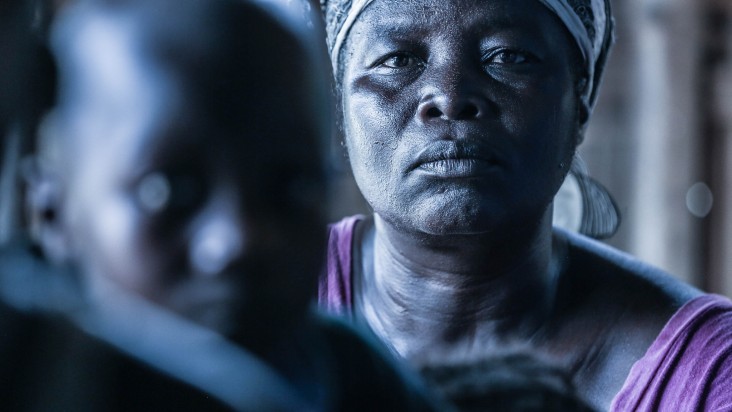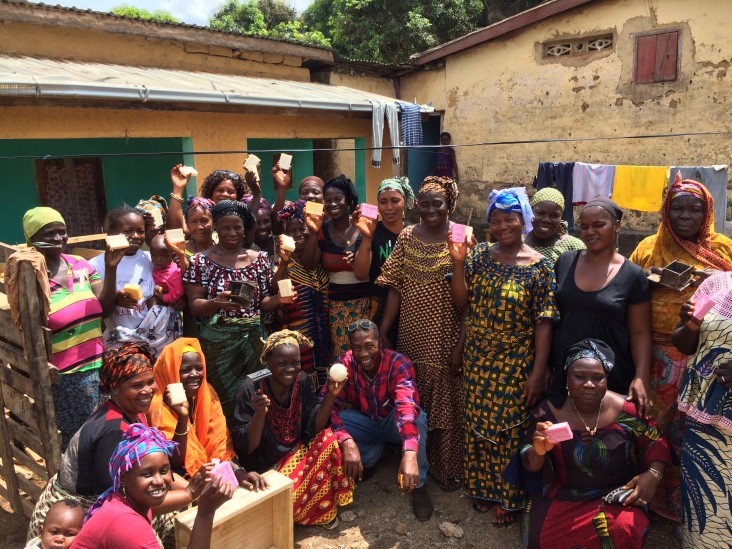- What We Do
- Agriculture and Food Security
- Democracy, Human Rights and Governance
- Economic Growth and Trade
- Education
- Ending Extreme Poverty
- Environment and Global Climate Change
- Gender Equality and Women's Empowerment
- Global Health
- Water and Sanitation
- Working in Crises and Conflict
- U.S. Global Development Lab

The average number of women participating in official roles at peace negotiations remains notably low. UN Women recently reviewed a sample of 31 major peace processes between 1992 and 2011 which revealed that only 4 percent of signatories, 2.4 percent of chief mediators, 3.7 percent of witnesses and 9 percent of negotiators were women. These numbers haven’t improved significantly since the adoption of the landmark UN Security Council Resolution 1325 recognizing the central role of women in conflict prevention, peace building, and post-conflict reconstruction.
In countries in conflict, sexual and gender-based violence can be used as weapons of war. And following crises such as natural disasters, many women and girls face increased risks of harm, exploitation, and abuse due to:
- Breakdowns in the rule of law.
- Disruptions in family structures and livelihoods.
- Inadequate attention to their distinct needs as part of relief and recovery efforts.
Recognizing that countries are more peaceful and prosperous when women are accorded full and equal rights and opportunity, the U.S. Government issued the U.S. National Action Plan (NAP) on Women, Peace, and Security [PDF, 758K]in 2011 and released an update [PDF, 3MB] to the NAP in June 2016.
USAID’s Implementation Plan [PDF, 324K] lays out how the Agency will invest in gender equality and women’s empowerment in crisis and conflict-affected countries to promote the rights and well-being of women and girls and to foster peaceful, resilient communities that can cope with adversity and pursue development gains. Under the NAP, we are working to:
- Institutionalize a gender-responsive approach to peace and security
- Promote women’s participation and leadership in peacebuilding and decision-making
- Protect women and girls from violence, exploitation, and abuse
- Engage women in conflict prevention, early warning, and disaster risk reduction and invest in their health, education, and economic empowerment to build stable societies
- Support safe, equitable access to relief and recovery assistance

We know that when women are engaged as meaningful participants at the negotiating table, they enlarge the scope of agreements and focus attention on the broader set of critical societal priorities required to achieve just and sustainable peace.
Building Social Cohesion: In Guinea, USAID provides support for the electoral cycle and political competition, as well as conflict mitigation in the Forest Region, which has experienced a surge in identity-based violence. Through the USAID-supported program, “Rebuilding Together: Community-driven Reconciliation and Enhanced Communication in Guinea Forestiere,” women were identified as a key stakeholder group for the project and are working across social divides to build peace and stability in their communities. These women's associations are learning to help address rumors and mediate conflicts in their communities so that disputes can be settled without violence.
Women’s Peacebuilding Initiative in Papua New Guinea: USAID recently launched a new peace building project that will better enable women’s civil society organizations in the Autonomous Region of Bougainville, Papua New Guinea to address major social issues that have resulted from a decade-long conflict. The two-year Women’s Peace Building Initiative, implemented in partnership with Counterpart International, aims to empower women to secure peace and sustain development in the region. The program targets gender-based violence, women’s rights, and the resulting trauma counseling needs of both men and women - all of which severed Bougainville’s ability to recover and rehabilitate into the flourishing region that it can be.
Supporting Peace and Reconciliation through Women’s Engagement: Together with a locally based women’s organization, Movement of Women for Peace, USAID helped to implement a series of community debates and clean-up days in the town of Ansongo in the Gao region of Eastern Mali. The activity brought together over 4,000 women, taking part in public debates and community service activities. The overall goal of the activity was to allow women in the community to reconnect with each other after struggling through years of heavy conflict, to support forgiveness, and to come together as one coherent community.
LEARN MORE
Tunaniya Open Learning Center Partners with WPBI to Raise Awareness and Expand Violence Prevention Efforts [PDF, 392K]
For more information please contact: Amber Ussery (aussery@usaid.gov)







Comment
Make a general inquiry or suggest an improvement.